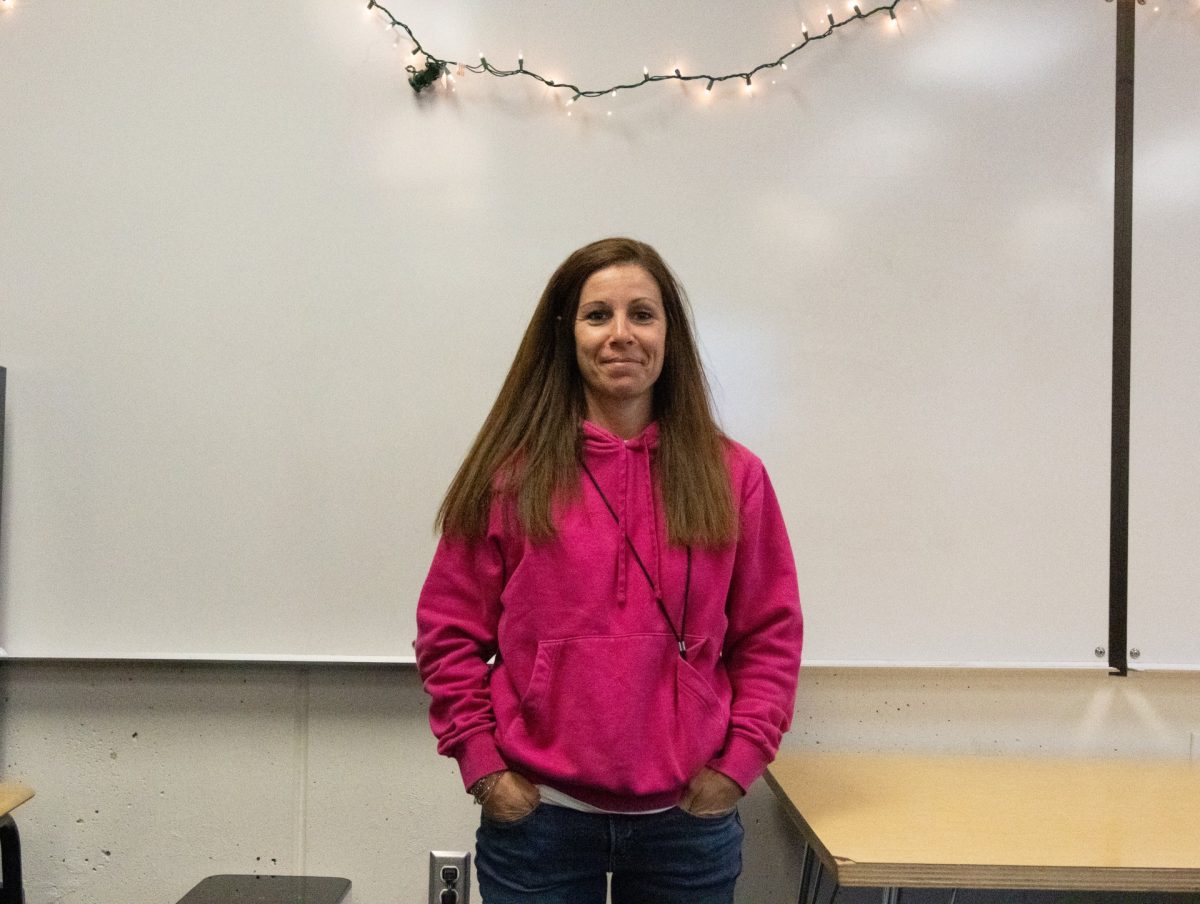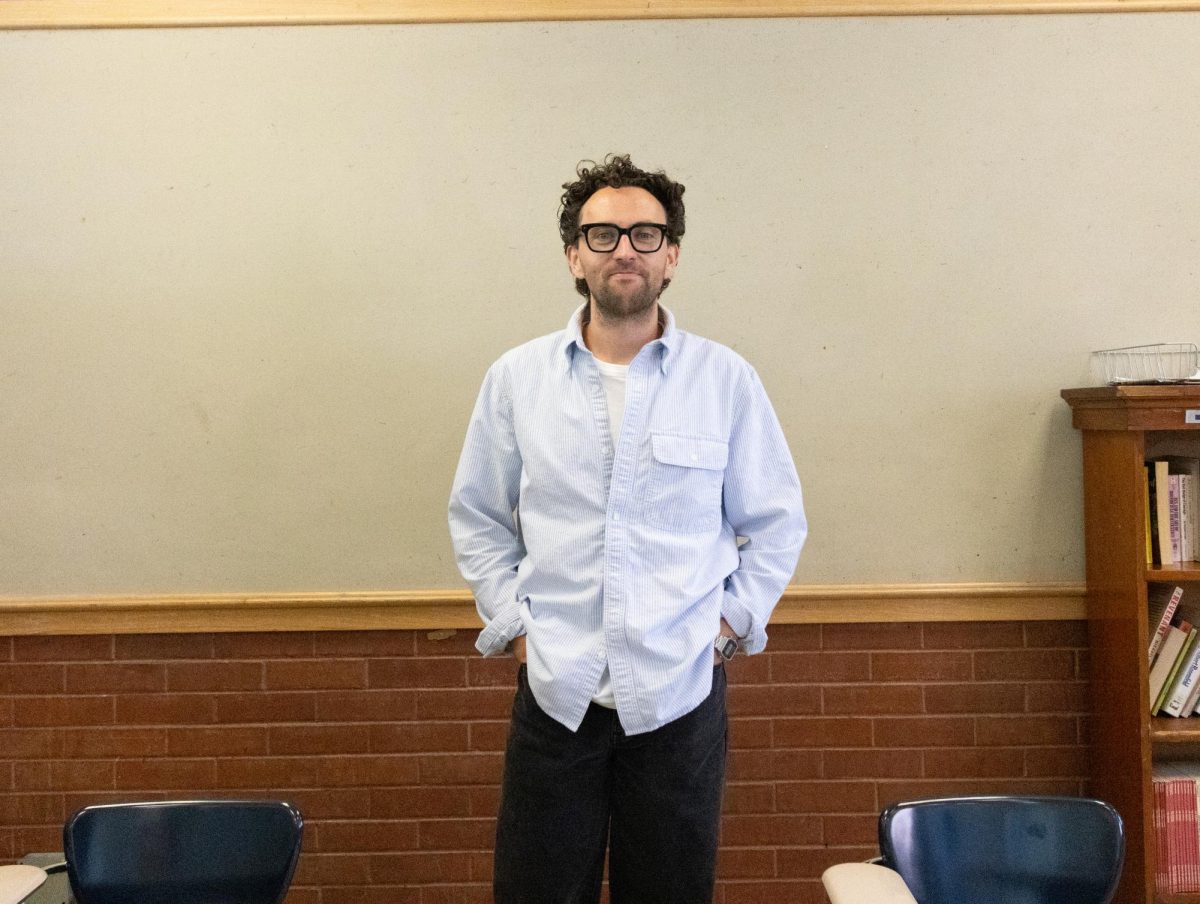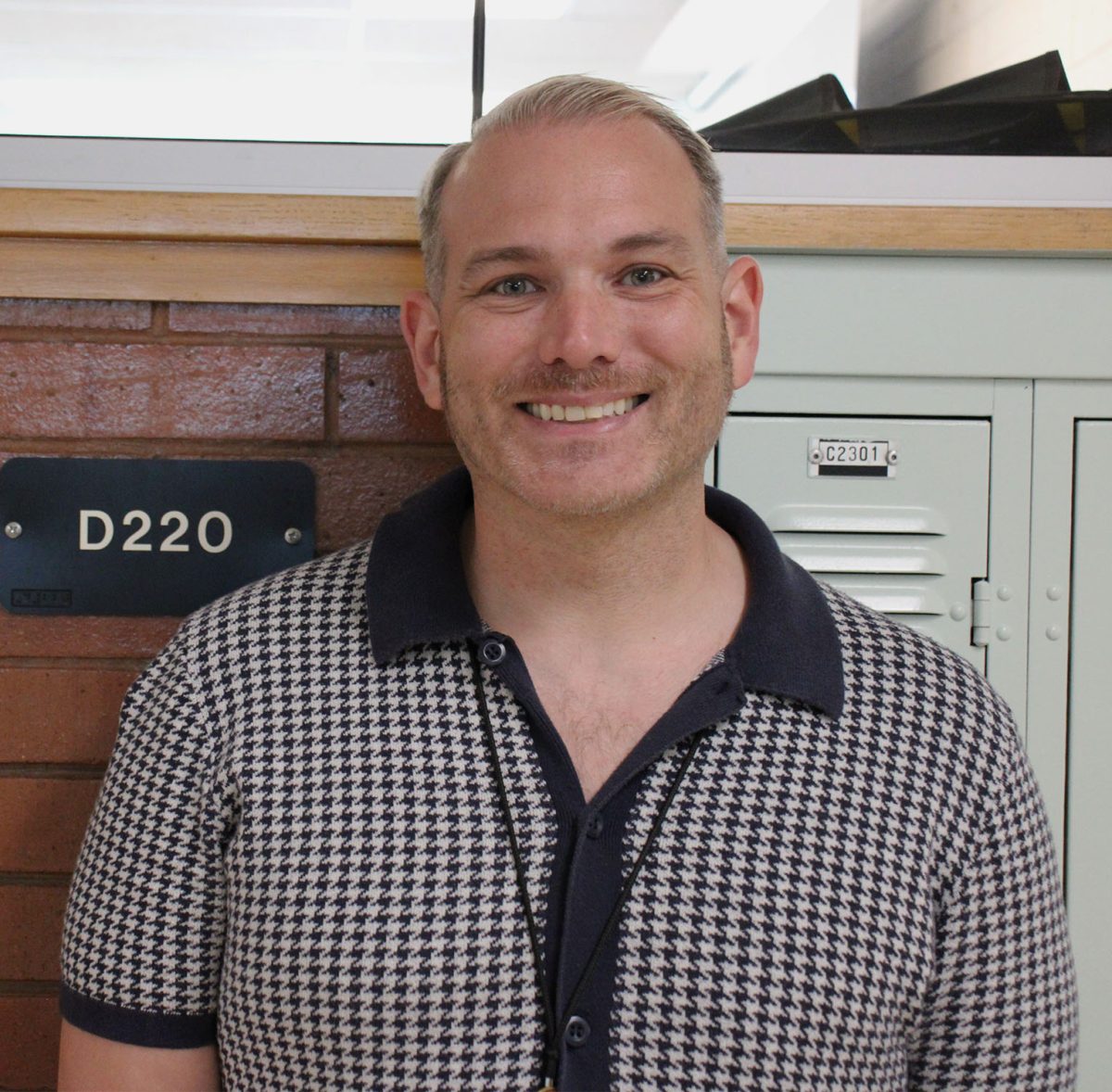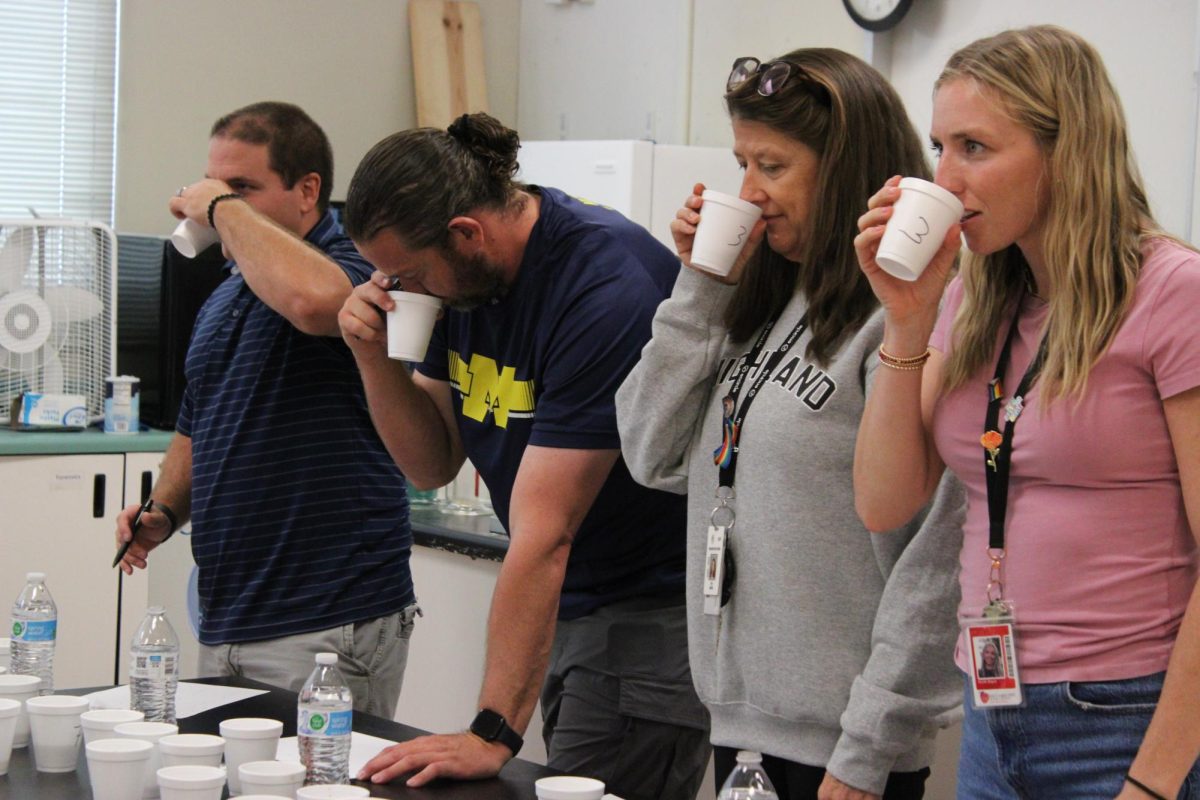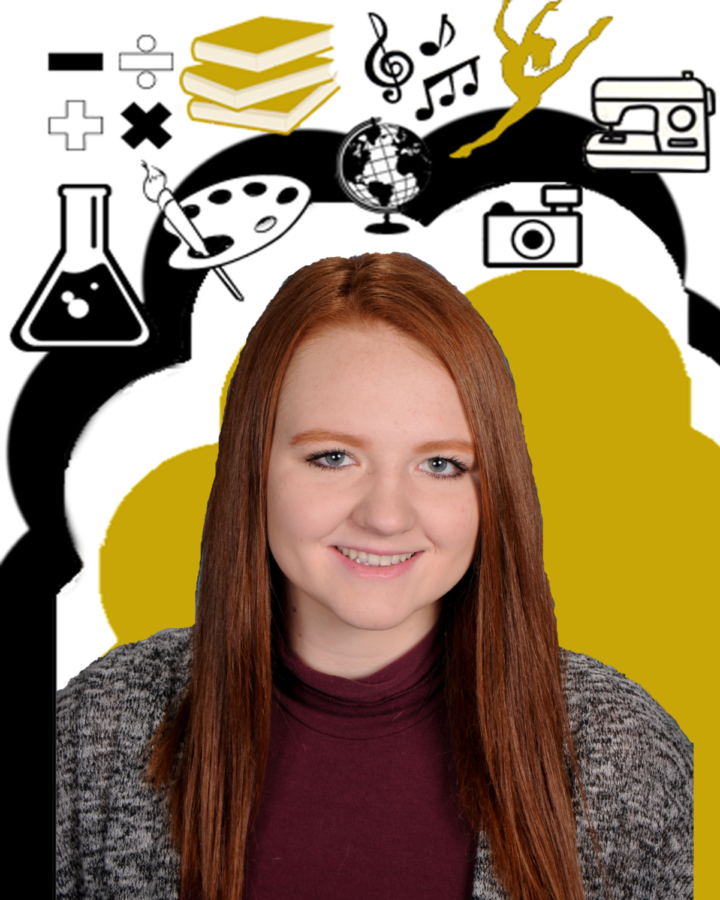Katarina Schilling
May 10, 2019
Kat Schilling never considered herself much of a writer.
The subject was something that she didn’t find too enthralling. It never peaked her interest, and she even considered herself to be bad at it. Now, she’s the English Sterling Scholar.
And all it took was a concussion.
For Schilling, journalism has become a large part of her life. Many hours of dedication and hard work have accumulated under her belt, shaping her columnist career. But while the editor-in-chief may love it now, her relationship with writing has not always been so sweet.
Writing, or English in general, wasn’t a hobby for Schilling.
“I never really liked writing or any English very much until the end of freshman year when I got a pink slip from coach Winn,” Schilling explained. She had been a student in one of his language arts classes. “He asked me if I would join journalism.” Schilling had never thought herself as much of a writer and, though confused by the request, joined the class regardless.
The decision was a bit of a change for Schilling, and for her parents.
“I’ve always thought of her as a math kid,” Troy Schilling, Schilling’s father, said. “She’s a really analytical person.”
Despite the seemingly out of character choice, it would soon prove to point Schilling’s life in a new direction.
The early years of high school are impressionable, easily influenced by others around you. A teen’s personality is still malleable, and it can be shaped by the decisions that they make. This was the case for Schilling. A relatively quiet kid, being in journalism was a bit of a struggle.
“I was like, ‘Everyone else in an incredible writer, they can talk to people, and I’m struggling to even talk to the people in the class,’” Schilling said. Journalism turned out to be a bit more work than Schilling had realized. For a while, she viewed it as “just something she was doing.” That is, until the concussion article.
“It was sophomore year, middle of the year,” Schilling recalled. Winn informed Schilling on some new things that the football coaches were doing with their players in relation to concussions. “It was the first article that I became really interested in.”
The injury focused article required lots of researching, interviewing, and . It also ended up having some personal insight.
“While I was writing it, I actually ended up getting a concussion,” Schilling said.
It happened during water polo practice. Schilling was in the middle of a shooting drill when she became the unfortunate target of a backhanded ball. The collision left her dizzy, even after trying to swim it off. Due to all of the research that she had done, she was able to identify and alert her coach of her concussion.
Despite the injury, there were some positive outcomes from the article.
“I kind of realized what kind of writing I really enjoyed doing through that. I felt pride in what I did for the first time in writing.”
This was a turning point for Schilling. Until then, she was unsure of her writing abilities and lacking self confidence. Becoming a writer also impacted Schilling’s development as a person. Mother Michelle Schilling comments on this.
“Being in journalism Sophomore year really sparked something that she didn’t realize she really liked to do,” she said. “I think that it’s helped her in terms of believing in herself.”
Journalism, being a diverse media platform, delves into an array of subjects. Exposure to different people and lifestyles is inevitable. From refugees to free speech, Schilling has covered a variety of topics during her time in the class. However, she takes more from these experiences than simply knowledge.
“The proudest moments are her growth from her writing her pieces and allowing her to learn something as a human being. That’s what I’m most proud of,” Michelle said.
Along with these moments, Schilling’s parents have many other things to be proud of. They’ve watched her dive in depth into sensitive topics such as suicide, unearth stories from refugees, and strongly express her opinions.
The skills gained from being in journalism have taught Schilling to do things that she struggled to do in the past.
“I didn’t love talking in front of people very much. But I’m not terrible at it anymore, and I think that’s because of journalism. I’ve learned to talk to people through interviews and talking in front of a class,” Schilling said.
Along with this, different opportunities have opened up for Schilling. For example, this past summer she was chosen to represent the state of Utah in the Al Neuharth Free Spirit and Journalism Conference. One student was selected from every state to attend the conference in Washington D.C.
An all-expenses-paid trip, Schilling was able to learn a lot from her time there. They explored D.C
From her whole experience, Schilling takes away one key lesson.
“I think that it’s the other skills with communication that aren’t actually journalism that I think are really important,” she said. “The skill set that I’ve gained from journalism–even just high school journalism–it’s kind of incredible how much it carries over into everything else I plan on doing.”
Troy also talks about the importance of connecting with others.
“No matter what you do in life, everyone has to communicate. Communication is a really key part in a job, and I think it will help her in whatever she does,” he said.
Overall, journalism became something that Schilling really fell in love with. While also opening new doors for her, it had a significant, yet positive, impact on her development. Journalism became a place where Schilling could utilize a hidden skill, all while blossoming into the person she is today.





